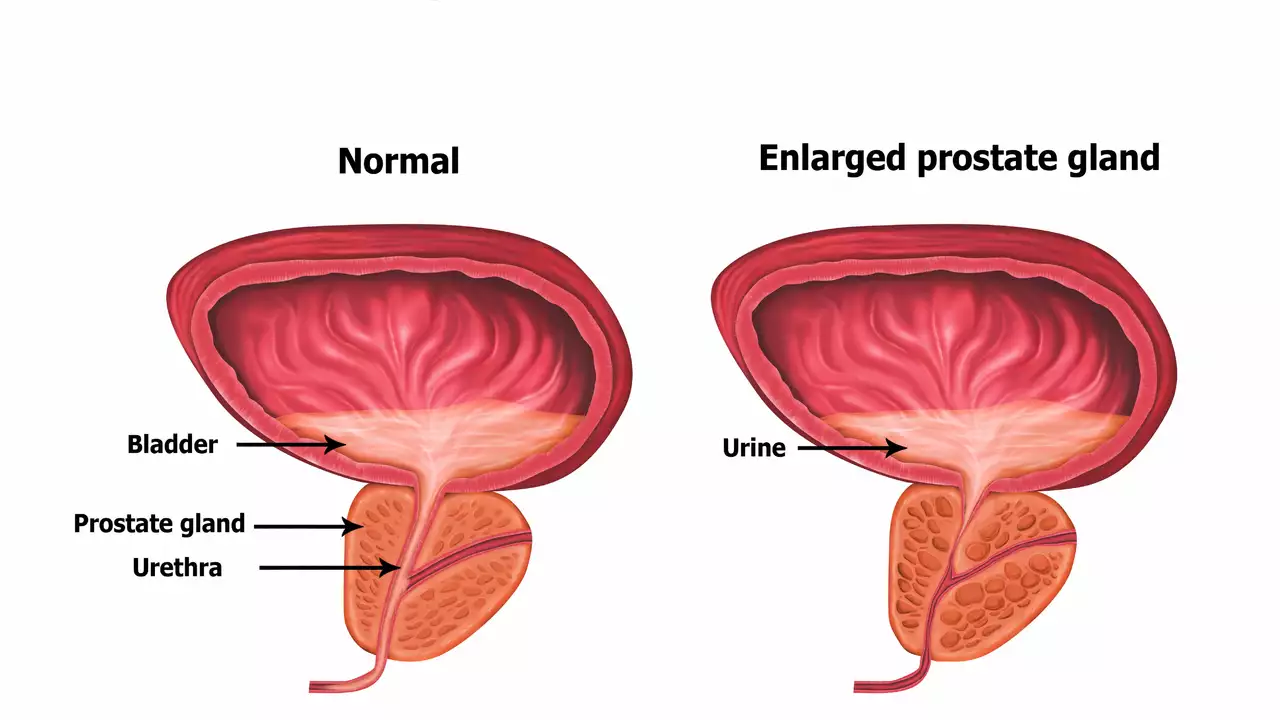Understanding Benign Prostatic Hyperplasia
As a man ages, it's not uncommon to encounter certain health issues, one of which being benign prostatic hyperplasia (BPH). Often mistaken for prostate cancer, BPH is a completely different condition that involves the enlargement of the prostate gland. Unlike cancer, BPH doesn't spread to other parts of the body. It's benign, but that doesn't mean it doesn't impact the quality of life. In fact, its effects can be quite significant, affecting everything from urinary function to sexual health.
Recognizing the Symptoms of BPH
Before we delve into how BPH can impact quality of life, it's important to understand the symptoms. Recognition is the first step towards management and treatment. The most common symptoms include frequent urination, especially at night, difficulty starting and stopping urination, weak urine stream, and the feeling of incomplete bladder emptying. Some men also experience bladder, urinary tract or kidney problems.
The Influence of BPH on Physical Health
BPH can have a substantial impact on a man's physical health. The constant need for urination can be exhausting, and over time, this can lead to discomfort, pain, and even urinary tract infections. If left untreated, BPH may also lead to kidney damage, which can further complicate a man’s overall health status.
The Effect of BPH on Emotional Well-being
Beyond the physical discomfort and health concerns, BPH can also affect a man's emotional well-being. Dealing with the symptoms can cause stress and anxiety, especially when it comes to social situations. The fear of not being able to find a restroom in time or having an accident in public can be emotionally draining. This constant worry can lead to social isolation, depression, and reduced quality of life.
Impact of BPH on Sexual Function
One aspect of life that's often overlooked when discussing BPH is sexual function. BPH can cause problems with sexual function, including erectile dysfunction and decreased sexual desire. This can add another layer of stress and anxiety, further impacting a man's emotional well-being and overall quality of life.
Managing BPH Symptoms
While BPH can significantly impact quality of life, there are ways to manage the symptoms. Lifestyle changes, such as limiting fluid intake before bedtime, avoiding caffeine and alcohol, and exercising regularly, can help reduce symptoms. Medications and surgical treatments are also available. It's important to discuss these options with a healthcare provider to determine the best course of action.
The Role of Social Support in BPH Management
Having a strong support system can play a crucial role in managing BPH. Sharing concerns and experiences with friends, family, or support groups can help reduce feelings of isolation and stress. Healthcare providers can also provide valuable resources and guidance to help manage the emotional impact of BPH.
The Importance of Regular Check-ups
Regular check-ups are crucial in managing BPH. It allows for early detection and treatment, preventing further complications. It also provides an opportunity to discuss any changes in symptoms or concerns with a healthcare provider. Regular check-ups can play a key role in maintaining a good quality of life despite having BPH.
Conclusion: Life with BPH
Living with BPH can be challenging, but it doesn't have to define your life. Through symptom management, emotional support, and regular check-ups, you can lead a fulfilling life. Remember, it's important to speak openly about your symptoms and concerns with your healthcare provider. You're not alone in this journey, and there are resources available to help you manage BPH.

ANTHONY SANCHEZ RAMOS
July 7, 2023 AT 11:20Fay naf
July 8, 2023 AT 08:57Jerry Erot
July 9, 2023 AT 14:30John Schmidt
July 9, 2023 AT 14:52Lucinda Harrowell
July 9, 2023 AT 16:12Leia not 'your worship'
July 10, 2023 AT 19:20Joe Rahme
July 12, 2023 AT 15:48Jo Sta
July 13, 2023 AT 22:51Matt Czyzewski
July 15, 2023 AT 05:03